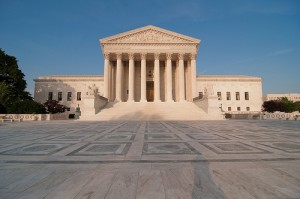That question arises in Lane v. Franks, No. 13-483, a Supreme Court case in which IMLA and the International Public Management Association have now filed a brief.
The Eleventh Circuit ruled that the termination did not trigger First-Amendment scrutiny:
No one disputes that Lane was acting pursuant to his official duties as CITY’S Director when he investigated Schmitz’s work activities, spoke with Schmitz and other CACC officials about Schmitz’s employment, and ultimately terminated Schmitz’s employment. That Lane testified about his official activities pursuant to a subpoena and in the litigation context, in and of itself, does not bring Lane’s speech within the protection of the First Amendment. See id. Furthermore, because formal job descriptions do not control, that Lane’s official duties did not distinctly require him to testify at criminal trials falls short of triggering First Amendment protection.
After Lane argued that this conflicts with rules in three other circuits, the Court accepted the case.
IMLA’s brief condemns retaliatory dismissal of a government employee for providing truthful testimony, but it argues that the Court should not create a constitutional tort available only to public employees under these circumstances. Instead, IMLA explains that other remedies are available for any such retaliatory discharge, such as existing whistleblower laws. If further protection is needed, the legislature, and not the Constitution, should provide it.
Image courtesy of Flickr by Mark Fischer (creative-commons license, no changes made).
